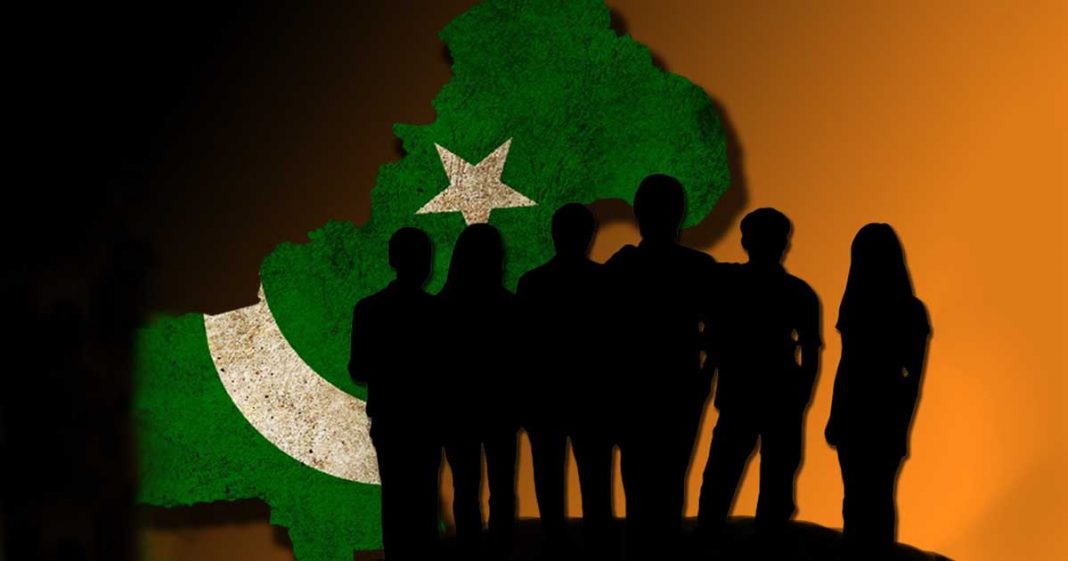The outgoing country director of World Bank (WB), Ilango Pachamuthu who hails from Sri Lanka made interesting remarks about Pakistan and its bulging youth population, which he has described as ‘passionate for change’. Our young population is our strength, provided they are steered in the right direction.
Raised to build the public
As the first-born free generation of Pakistan, we were raised to build the republic, though our paths differed. The progressives were organised under the National Students Federation (NSF) and the National Students Organisation (NSO) while the right or ‘Jamatia’ as they were called, were enrolled in Islami Jamiat-e-Talba, whose leaders were then expected to join the Jamaat-e-Islami (JI).
Read more: Is Pakistan moving forward or backwards?
Most campuses were political, student unions were very active and elections were held regularly. Debates, discussion, rallies and processions were a norm. Several student leaders then joined the political mainstream; a few names come to mind—Aftab Gul, Tariq Ali Khan, Sikander Hayat, Pervaiz Saleh, Sheikh Rashid, Farid Piracha, Munawar Hasan, Liaqat Baloch etc.
The leadership nurseries were alive, vibrant and effective. The first test of the political sagacity came when a movement was launched against Ayub Khan, the dictator. There were pitched battles on the Mall Road. By March 1969, the mighty Khan could not hold on to power and was forced to step down.
The cost of power and energy are out of the reach of the common man; with the expensive IPPs based on imported fuel and the expensive LNG from Qatar, the country will continue to suffer
The first generation had prevailed over the coercive state apparatus. Lathis, tear gas and bullets could not dampen our resolve for freedom and democracy. The same flame has to be rekindled in the youth again.
The momentum of activism continued in the democratic era that followed (1971 to 1977). Student unions were very powerful and organised. Most of our youth are apolitical; I am sure they are passionate about change, but they lack the skills to challenge the status quo to carve out a new path that can take them forward.
That is why since July 1977, we have been moving backwards. With Imran Khan in the saddle, hope has been rekindled, but a lot of work needs to be done to introduce the much-needed change. The last forty years (1977 to 2018) have taken us back, with the collapse of institutions and the disillusionment of youth, who are required to take us out of this mess.
Read more: Is bureaucracy stalling change?
Much needed change
Mr Pachamuthu has shared some of his ideas to introduce the much-needed change. He has blamed ‘elite capture’ for all our ills. Citizen’s needs are ignored by policymakers as people are not consulted. The cost of power and energy are out of the reach of the common man; with the expensive IPPs based on imported fuel and the expensive LNG from Qatar, the country will continue to suffer.
By 2047 when the Islamic Republic will be 100 years, he hopes to see Pakistan in the comity of developed nations like South Korea and Taiwan. His parting advice is to focus on the development of the bulging youth population.
It was a good question and my answer was, you are the future, if you dig in and fight, it will be bright but if you leave in search of greener pastures, it will be dark
These large international lending institutions like the WB or ADB are huge bureaucracies that know everything but resolve nothing. With due respect to Mr Pachamuthu; most bureaucrats they give good sermons when they retire or leave.
A few years ago, I went on a WHO quality management project to Sudan. I was introduced to the Health Minister with great fanfare as an international expert; he was not amused and kept counting his rosary beads.
Read more: PM Khan’s dream of Welfare State can come true if these issues are resolved
Someone to guide through modern management
After the introduction was over he said, we do not want lectures and seminars, we want someone to hold our hand and walk us through these systems of modern management. He saw the grin on my face and asked the reason for it, I said, ‘Sir I have been looking for such action in my own country, you have provided me with that opportunity.
The Sudanese are very smart people, he understood commitment, and said, “Alright. Go to Shaab Hospital and develop and implement an ISO 9000 Quality Management System starting tomorrow.”
So far, most of my students were born in the 20th century. In every class, I ask them about the major revolutions that took place in the millennium of their birth, their blank look conveys it all. Most of them are possessed by globalisation, privatization and free market concepts.
Read more: Pakistan’s political sphere: Can this “immoral order” be fixed?
After the class, they tell me that their parents want them to get good grades and then get a job and move on in life; reformation of society is not their business. Then in one of my classes, a student asked about the future of Pakistan. It was a good question and my answer was, “you are the future, if you dig in and fight, it will be bright but if you leave in search of greener pastures, it will be dark.”
Dr. Farid A.Malik is the Ex-Chairman Pakistan Science Foundation. (Fr. General Manager PITAC, Process Engineering Manager Intel Corporation Engineering and Management Consultant). An expert on mining and energy, currently working on developing clean Coal Technologies for Thar Deposit. He was a Shadow Minister PTI and Co-Ordinator of the PTI Think Tank where the framework of the Welfare State was developed. The article was first published in The Nation and has been republished here with the author’s permission. The views expressed in this article are the author’s own and do not necessarily reflect Global Village Space’s editorial policy.














